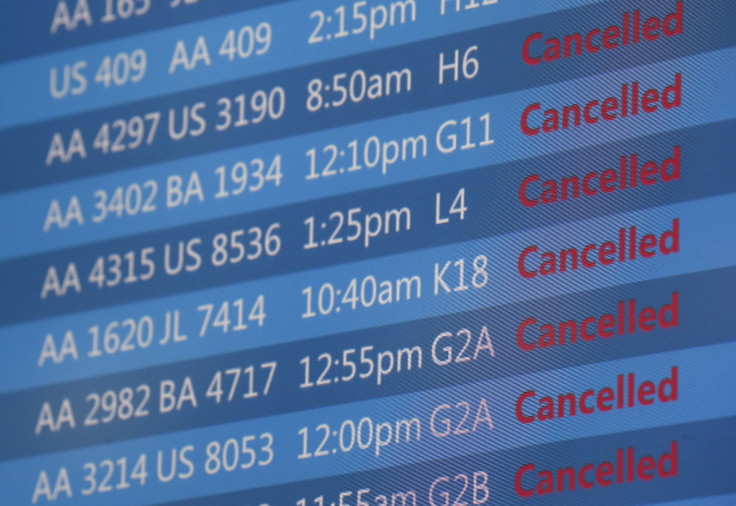Chicago Air Traffic Troubles: O'Hare, Midway Cancellations, Delays Should Be Back To Normal In 2 Weeks, FAA Says

An air traffic control center that handles flights in Chicago may take two weeks to repair after a contractor allegedly started a fire that resulted in thousands of flight cancellations and delays over the weekend. More than 400 flights were either canceled or delayed at O’Hare International Airport Monday morning, the fourth consecutive day that flights have been disrupted following the Friday fire.
At O’Hare, 208 outbound flights were canceled as of 10:19 a.m. Monday, or about 15 percent of all flights originating at the Chicago airport, according to FlightAware.com. Another 48 outbound flights, or 3 percent of all flights, were delayed. Meanwhile, 15 percent of inbound flights to O’Hare, or 213 flights, were canceled, and 75 flights, or 5 percent of all flights, en route to O’Hare were delayed.
At Midway, Chicago’s other major international airport, air traffic was much smoother on Monday morning. One inbound and one outbound flight were canceled, and 42 inbound and 27 inbound flights were delayed, according to FlightAware.
More than 1,700 flights were canceled Friday and 600 on Saturday at O'Hare alone, USA Today reported. The fire was the second since May at one of the Chicago area's major control facilities prompting flight delays at O'Hare and Midway. Air traffic controllers at the Chicago control center handle flights across Illinois, Indiana, Iowa, Michigan and Wisconsin. The air traffic disruption also delayed flights at other airports in the region, including Minneapolis/St. Paul, Milwaukee and others.
“The FAA steadily has increased the number of flights arriving and departing at O'Hare and Midway,” the FAA said. “Air traffic controllers safely managed about 60 percent of typical traffic today at O'Hare and over 75 percent at Midway.” The agency said it expects “full service” to return to the Chicago air traffic control center by Oct. 13.
To minimize the impact on air traffic in and around Chicago, the FAA said air traffic controllers who normally work at the damaged center in Aurora, Illinois are now working at surrounding centers. A portion of the employees were deployed to “high-altitude air traffic centers” near Chicago, including Minneapolis, Kansas City, Indianapolis and Cleveland.
© Copyright IBTimes 2024. All rights reserved.






















